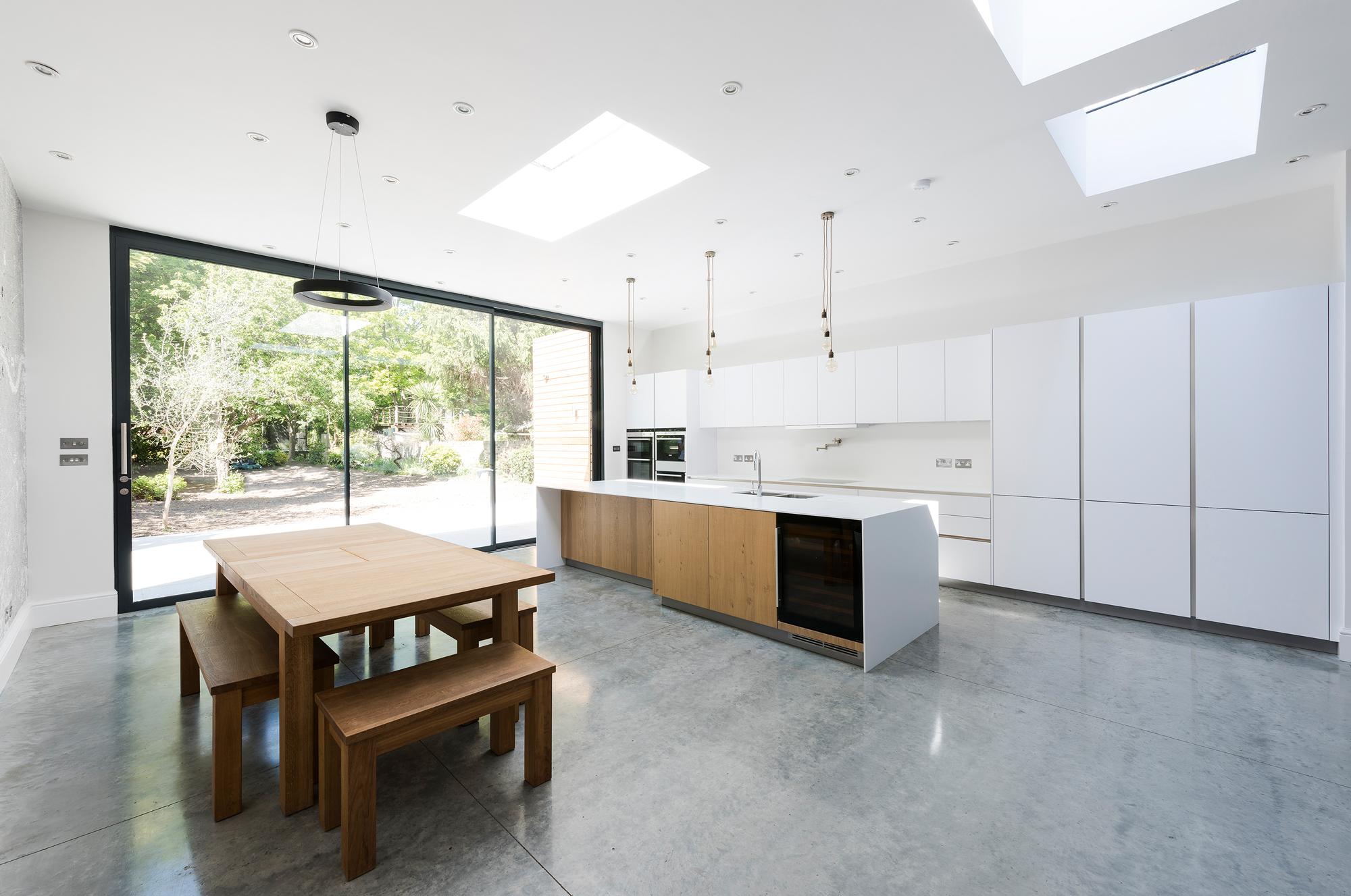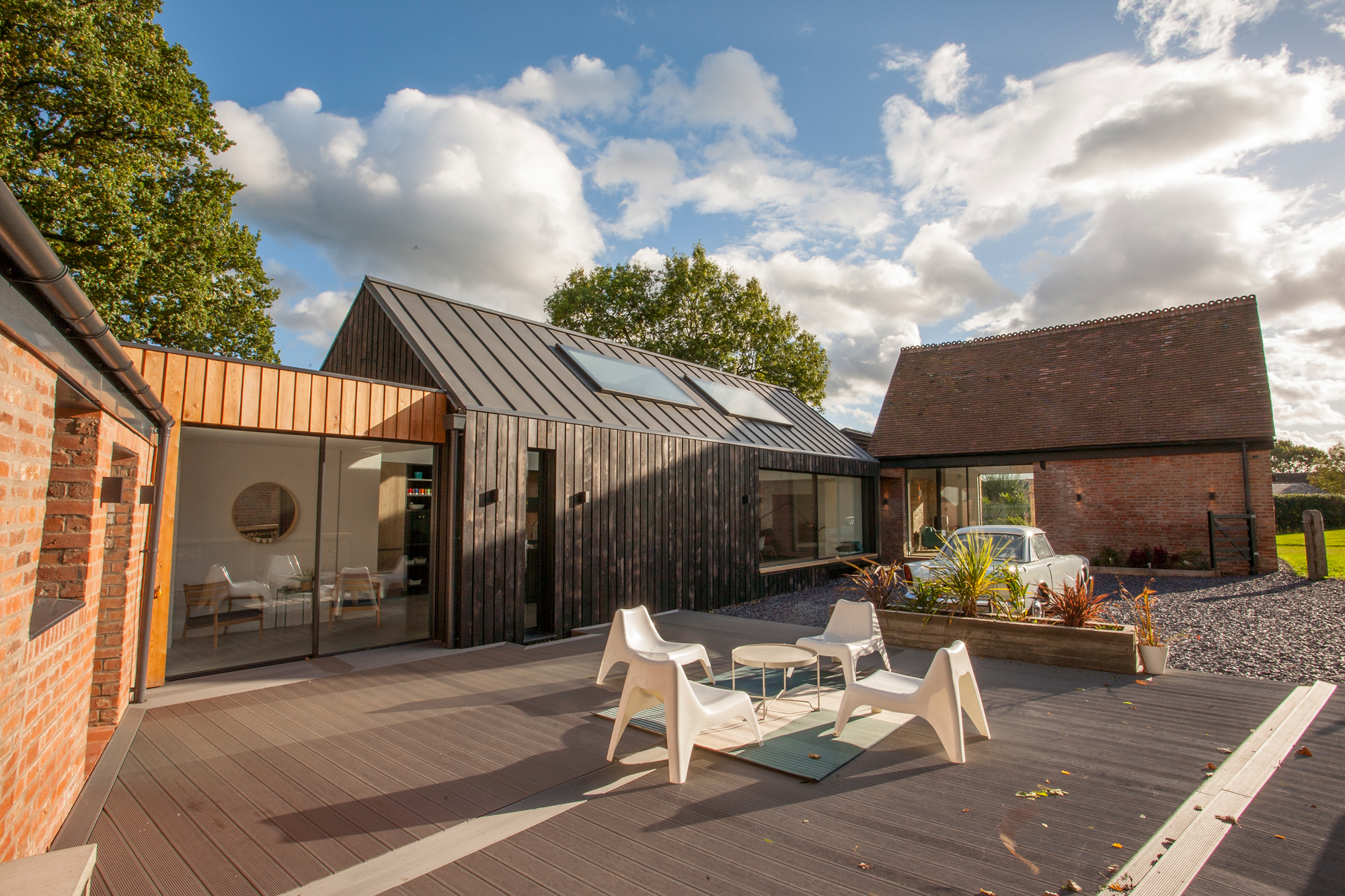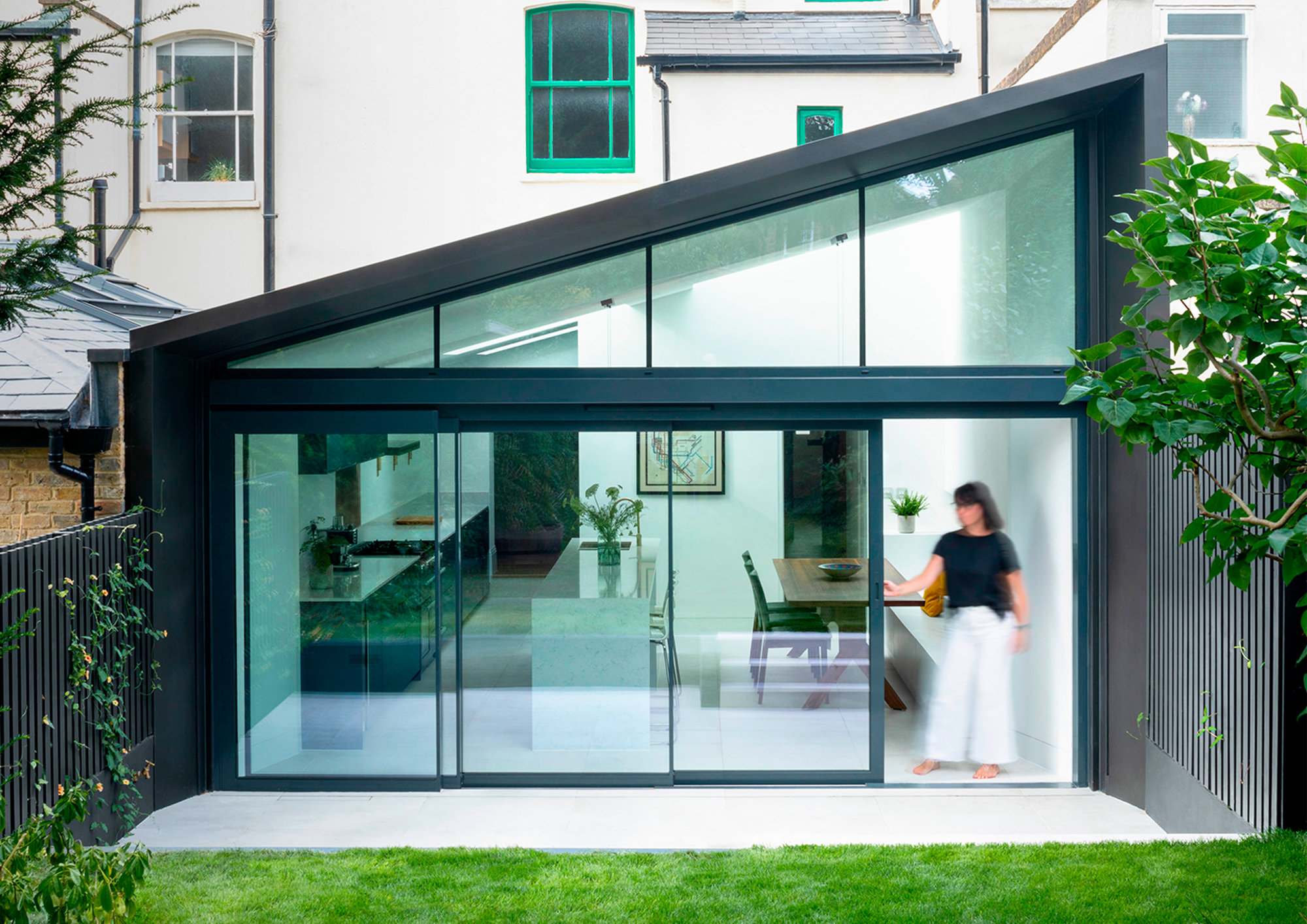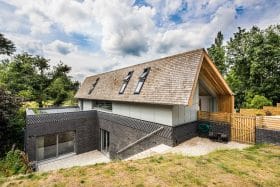

Sun-soaked interiors, panoramic views and an unbroken connection between inside and out are a few of the benefits that accompany the installation of glazed doors.
Choosing between bifolds, sliders and French varieties usually comes down to how you plan to use the space and your overall design goals for the project.
Thanks to minimal framing and larger spans of glass, sliding openings are often the preferred choice for self builders and renovators keen to introduce the maximum amount of sunshine possible.
Choosing doors and windows for your home?Find the perfect finishing touches for your project at Build It Live. Watch live presentations on a variety of self build and renovation topics, browse thousands of products and get your specific questions answered. Build It Live takes place three times a year in Kent, Oxfordshire and Exeter. The next show will be on 22nd and 23rd February 2025 in Maidstone, Kent. Claim a pair of free tickets today and start planning your visit. |
Aside from the obvious advantages of enhanced brightness and glorious outdoor vistas, slender frames often have the edge over thicker sightlines when it comes to establishing a contemporary aesthetic.
“With narrower surrounds it’s possible to fit larger sealed units, maximising the glass area and breaking down the boundaries between inside and out,” says Edward Stobart, head of projects at IDSystems.

TheEDGE 2.0 setup from IDSystems comes with Secured by Design approval. This police-led initiative focuses on designing out crime by promoting high security standards for windows and doors
While folding panel configurations concertina back to enable larger apertures to be created when the doors are open, you won’t be able to achieve the same minimal look when the system is closed.
“With a bifold door it’s not currently possible to achieve sightlines as slim as a slider, because there needs to be enough frame to fix hinges to, as well as housing the locking mechanisms and handles,” says Matt Higgs, director and co-owner of Kloeber. “The latter do not require hinges or lever fittings so they can be engineered to be more slender.”
Design innovations for energy-efficient, thermally broken aluminium frames over the past decade have enabled a host of sleek products to flood the market. Suppliers including IDSystems, Kloeber, Maxlight and Ultraline offer a range of options, with impressive sightlines measuring just 20mm in width.
The innate strength of aluminium, in addition to the material’s lightweight qualities, are key components in the success of this type of entrance. “Timber, composite and PVCu would not have the stability that aluminium has,” says Matt. “At such thin sections, these options would be liable to warp.”

Kloeber’s Uberslide range offers panels up to 4.2m wide with 20mm sightlines. The system is priced from approximately £800 per m2. The total cost will depend largely on the complexity of your specification
The development of narrower frames over the past decade has been enabled by a host of manufacturing advances, including a technique that bonds the glass directly to the metal surrounds.
“While this isn’t a new method entirely, it has enhanced the rigidity of the systems and therefore reduced the reliance on the frame for structural integrity,” says Edward. As a result, the specification of the glazing itself is vital, and in most cases thicker panes of toughened glass are required.
“Progress in how running gear and track details are produced has also played a part, as it’s made heavier and larger panels more achievable,” says Edward. “The ability to reinforce frames to enable them to have the required strength to withstand wind load has improved, too.”
Before setting your heart on the minimal aesthetic super slim door frames establish, it’s vital to do your homework. The location of your home, for instance, is an important aspect to discuss with your chosen supplier.
“Not every slim sliding door on the market has the ability to stand up to wind load as well as it should. So, if you’re outside an urban area or get strong gusts of wind, you may find this type of product isn’t capable of meeting your needs,” says Edward.
THE DO’S AND DON’TS FOR YOUR SCHEME
|
“Another element to consider is how easy it is to operate the doors,” says Edward. “Systems with incredibly narrow frames at the base of the setup tend to have smaller running gear wheels that can make the panels feel heavier to use.”
Because of the lesser proportions of the hardware, potential problems can arise if small stones or debris get into the running track of the doors. So, it’s important to keep the operating mechanisms in a good state of repair. When doing your research, head to the showroom to try the doors out for yourself.

This contemporary extension project, by Gruff Architects, features slim framed glazed doors from IDSystems. TheEDGE 2.0 setup features 20mm sightlines and is priced from £2,000 per linear metre
While browsing inspiring imagery online will give you a great idea of what products look like, it won’t tell you that much about the quality of the setup or how easy it will be to interact with on a day-to-day basis.
How you intend to use the space is another important consideration that your chosen supplier or architect will be able to advise on – and may determine whether slim frame sliders are the right choice for you.
“The design of the rest of your house can dictate what will work,” says Matt. “For example, a sliding door doesn’t open up the whole space like a bifold setup does, so you need to weigh up what’s important. It’s really down to personal preference.”
If you do decide that slender frame glazed doors are the right fit for your project, there’s still a host of considerations to figure out before parting with any cash. It’s important to spend time ironing out the details at the design phase of your project to avoid any headaches later on.
Budget is, of course, one of the key elements to bear in mind, as slender aluminium designs do tend to come at a premium. “As with any product that becomes popular, there are now lots of poor quality varieties on the market from people jumping on the bandwagon,” says Kloeber’s Matt. “Ensure you look at trusted suppliers that have been around for a long time.”
As with any glazed door installation, it makes sense to go for a design, supply and fit service, so if anything goes wrong when the units are fitted, the fault lies with the company and not with you.
What’s next for glazed doorsWhile the manufacture of very slender frames is one key area of innovation in the industry, many suppliers are working on configuration advances, too, that offer homeowners the best of both worlds in terms of light and open space. “The development of slide and turn doors is the next big thing,” says Edward from IDSystems. “The ability to provide narrow sightlines yet create completely unobstructed openings is a significant step forward. It offers an alternative for customers who are struggling to choose between bifold and sliding designs.” For example, IDSystems’ vistaline system, which picked up the Build It Award for Best Glazed Doors in 2018, establishes a complete opening in the same way as bifold doors, without compromising on slim framing. The setup comprises a series of individual panels that slide and stack to one end of the aperture. It is priced at £2,500 per leaf including fitting. |
“Know who originally designed the product, where it’s made and who is installing it,” says Edward. “It will help you compare the options that are available, as well as finding out more about the capabilities of the companies you’re dealing with.”
Pay close attention to the glass specification, too. While expansive swathes of glass are perfect for inviting plenty of sunshine inside, if your doors are being fitted on the south elevation of your property overheating may be a risk. Special solar control coatings can help to offset the possibility of excessive heat gain.
Security is another important aspect that shouldn’t be overlooked. “With narrower outer frames some of the doors on the market are restricted to the type and style of locking mechanism they can use,” says Edward.
Check that the model you want to install meets a recognised independent standard, such as Secured By Design.

